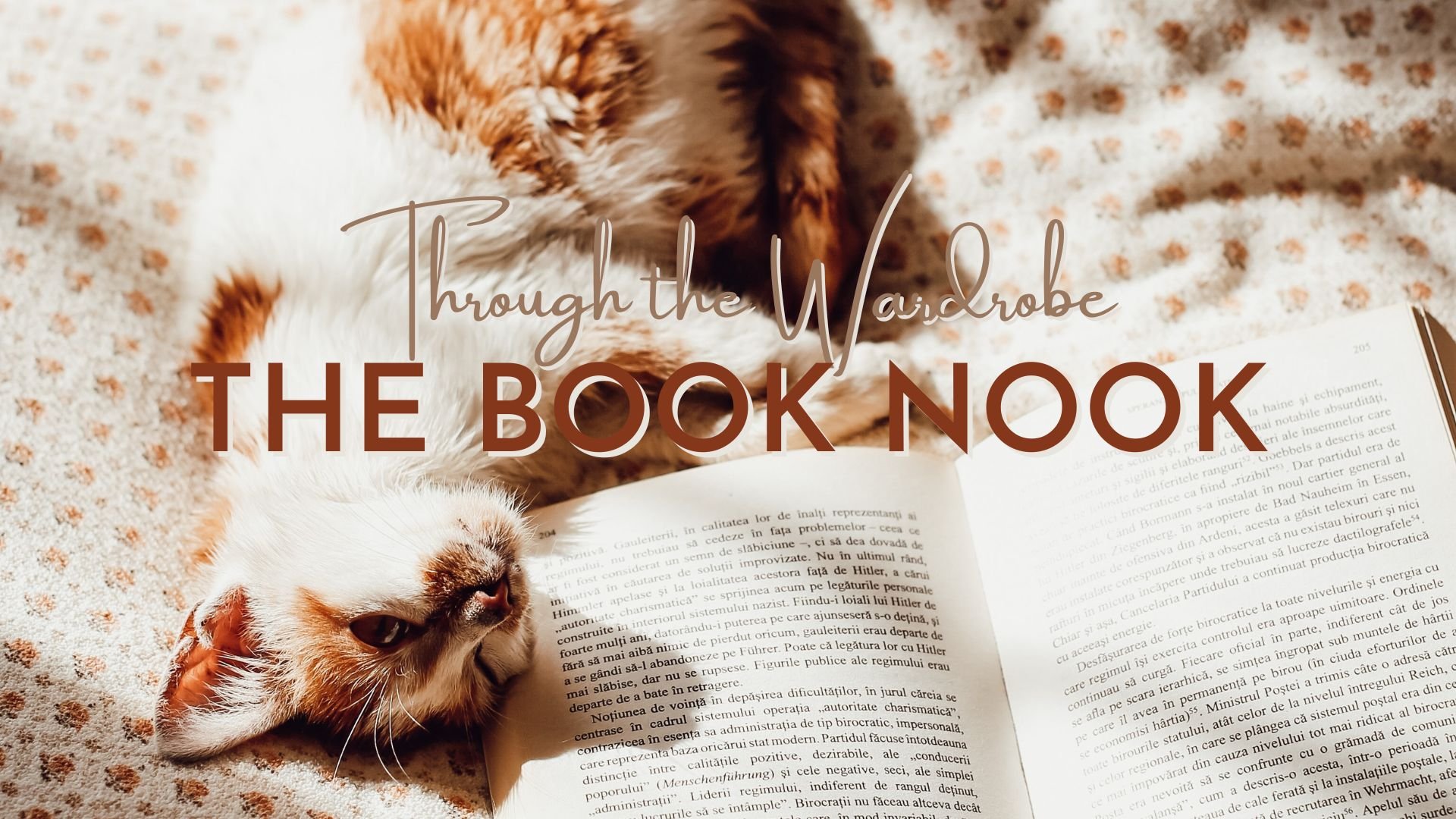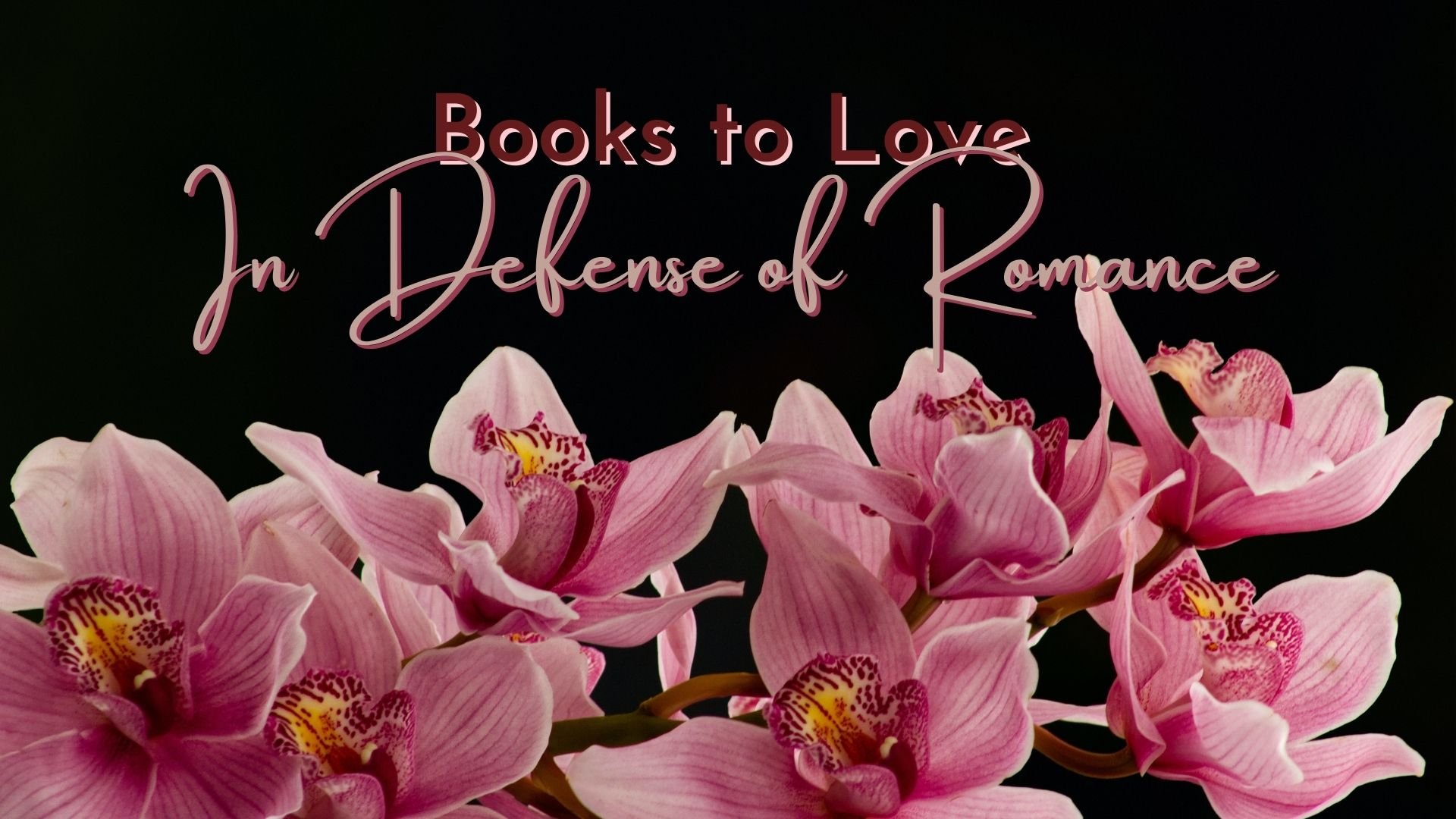Books to Love: Eerie Evening Reads
With Halloween just around the corner, many are preparing their costumes and fancy dress, gathering candy for trick or treaters, and planning soirees. Here in our home, we’re doing none of the above, but that doesn’t mean that I don’t have some spooky reading recommendations that are perfect for this time of year.
Years have passed since I read many of these books. However, while I may not recall particular details, the overall impression left by these reads does remain. Some I shall enumerate upon more than others, but all of them are worthy reads, especially because they have crafted into them an eeriness that compliments this time of year.
Classic Horror
Harkening back to the classics may not seem like the thing, but, honestly, the masters of horror find their place firmly in the classics section, now, don’t they?
Edgar Allen Poe is a figure of interest for myriad reasons. His short life was filled with enough sorrow, heartbreak, and betrayal that it fostered an environment for his mind to invent some of the most haunting poems and prose ever to grace the page.
While I cannot pretend to be an avid reader of Poe’s work, there are several pieces that are worthy of inclusion on a post about frightful reads.
I shall begin with Poe’s famous poem, The Raven (follow link to read full poem). This work has been read, recited, and dramatized the world over. Even the Simpsons put their own interpretive take it. Many of us can recall having this poem as required reading at some point in our education. However, since this poem is so well known, and usually taught in school, we are in danger of being overly familiar with it and inclined to dismiss it. We know it’s a worthy poem; we know it’s famous. Heck, we even know it’s creepy. But, perhaps this year is the year that we should sit down and re-read it for the simply purpose of deriving a chilling thrill from it.
The next offering is two short stories. The first is most appropriate to be included on Whiskers on Kittens; it is Poe’s story The Black Cat (click on the link to find the full short story). A rather swift read, perfect when snatching a few minutes together on your evening commute or while your dinner is making, The Black Cat provides a context of horror that is both overt and subversive. The overt deals with the physical manifestations that the narrator shares with the reader, the series of seemingly unnatural, or supernatural events, that occur. The subversive, of course, deals with the underlying horror of the story, which is, what human beings are capable of.
“Yet I am not more sure that my soul lives, than I am that perverseness is one of the primitive impulses of the human heart — one of the indivisible primary faculties, or sentiments, which give direction to the character of Man. Who has not, a hundred times, found himself committing a vile or a silly action, for no other reason than because he knows he should not? Have we not a perpetual inclination, in the teeth of our best judgment, to violate that which is Law, merely because we understand it to be such? This spirit of perverseness, I say, came to my final overthrow.”
The whole of the short story actually revolves around this idea- the spirit of Perverseness. And it provides a base for a great deal of horrific action and horrific consequence.
The second short is The Cask of Amontillado (follow the link to read the short story). This story just has the right feel for All Hallow’s Eve; it’s entirely atmospheric in the most awful sense. The chaotic air of carnival, subterranean catacombs, torch light, and that ever tinkling bell upon Fortunato’s conical cap. In many ways, The Cask of Amontillado reminds me of the Count of Monte Cristo; it’s just a much shorter tale and one that is starkly more vengeful. Yet, they both dance around the theme of vengeance. The Cask, however, will leave you more horrified.
Another classic that should get a rotation at this time of year is Mary Shelley’s Frankenstein (follow the link to Project Gutenburg for the full digital novel). This novel is filled with elements of horror, from the construction of Frankenstein’s monster, to its pursuit and Frankenstein’s demise. The overarching theme of the novel is the place of science; just because advancements in science can facilitate a thing does not mean that it should. The horror is truly what mankind is capable of.
Cautionary Horror
This ethical theme is echoed throughout literature. Two such places where we can see modernized versions of it are in Michael Crichton’s Jurassic Park and Dean Koontz’s Frankenstein series.
“But scientific power is like inherited wealth: attained without discipline. You read what others have done, and you take the next step. You can do it very young. You can make progress very fast. And because you can stand on the shoulders of giants, you can accomplish something quickly. You don’t even know exactly what you have done, but already you have reported it, patented it, and sold it.”
Michael Crichton’s Jurassic Park throughly explores how science can go too far. Simply because innovations have been made that allow for major advancements in scientific discovery doesn’t mean that scientists should pursue such innovations unrestrictedly. Ethics has long been a discussion here. Many poo-poo it as a tool to restrict advancement. Others see it as a necessary evil to act as conscience for scientists who seem possessed with ‘scientific power.’
Jurassic Park is a pertinent read today because of all that the world has witnessed with the cultivation of deadly viruses within laboratories funded by medical and research dollars from the world’s most prestigious medical and scientific organizations. We’ve seen it in Wuhan and now we’re seeing it closer to home from such prestigious and venerated organization as Boston University. All in all, the horrors foretold and enumerated first in Frankenstein and then in Jurassic Park provide a horrifically sobering read, now with frightening historical context.
Dean Koontz’s Frankenstein series is a slight departure from Mary Shelley’s novel. First off, he has modernized the entire setting to present day New Orleans. Secondly, Frankenstein’s monster has evolved from the neanderthal monster of the classic novel to an erudite, intelligent individual. Further departure is found when you meet Dr. Frankenstein himself. Rather than his demise having occurred at the end of Shelley’s novel, Frankenstein is alive and well, through scientific measures he himself invented to render himself, in a word, immortal.
Through the ensuing years since his confrontation with his creation on the ice of the Arctic, Frankenstein’s scientific pursuits have devolved into sinister machinations tainted with moral and ethical corruption and quests for power and unmerited influence.
Dean Koontz has long played with the trope of unrestrained scientific exploration, delving into myriad themes such as the divorce of human compassion from the quest for scientific superiority or the devaluing of the human person as it is viewed as a scientific subject. Who can forget his almost prophetic writings in The Eyes of Darkness regarding a biological weapon developed in the Wuhan labs in China?
Like Poe, Koontz provides his most horrid scenarios in the context of what humans are capable of inflicting upon one another. While it has been years since I read any of the Frankenstein series by Koontz, I do recall a bevy of interesting characters, a truly grotesque villain dressed to the nines in his tuxes and availing himself of the finest things life has to offer, and that measure of importance that all novels should possess when discussing the darkest of evils, hope.
I have written about Dean Koontz many times (see Why I’ll Always Read Koontz for a glimpse). His works are a shining example of exceptional writing that inspires me to want to write better. (I actually take notes while reading his works because he is such a master craftsman.) One of the elements of Koontz’s novels that I appreciate is his Dickensian approach to good and evil. The villains in his novels are unapologetically evil. However, while his good and evil meter mimics Dickens, the crafting of his heroes pulled further afield from the likes of Trollope; his protagonists are not paragons of virtue, but ordinary people who make a choice to work for good, to contend against evil, regardless of the cost. And, often, the cost is great.
Since Koontz is so accomplished at rendering a villain to the page, he spares nothing when fleshing them out, exposing the depravity of their wickedness. Sometimes this makes it difficult for me to read the book. One such case is What the Night Knows. My husband and I listened to this book during a road trip that we took to New York to visit family. However, about two thirds of the way through, my husband said he could not listen to any more. It was too dark for him, too evil. I confess that while I turned the novel off in the car, I came home and finished listening to it on my own. It was almost irredeemably dark. Yet, he did end with a sliver of hope that dispelled the encroaching, suffocating darkness.
If you are looking for a lengthy read, a book that is beautifully written, but heartbreaking and horrible in its prose, then I can recommend What the Night Knows. The villainy is more supernatural than some of his more current work, but it works well. And, besides his superb craftsmanship in writing, what I also appreciate about Koontz is his stellar research into whatever he is writing. Even his supernatural presentments are well-rounded because he infuses them with precise details that usher them into a semblance of reality.
Gothic Horror
My final offering for this post is a departure from all of the above. However, it does hold a proper place in this post because it presents elements of horror and mystery. Furthermore, this novel delves into the horrors mankind inflicts upon itself, much like Poe, Shelley, Crichton, and Koontz all explore. However, this books does so within the confines of the Gothic trope.
There is nothing like a good Gothic novel at this time of year (see Let’s Get Gothic post here). They are perfect cozy reads. Just the recipe of mystery, suspense, thrills, and chills provide a satisfying, dishy read.
Silence for the Dead by Simone St. James ticks off all the boxes for a good Gothic. It even has an old, haunted house (see Age Stricken Houses post here). All good Gothic have a house with its own personality; du Maurier’s Rebecca, anyone?
“This house was a vampire, feeding on the pain, the insecurity, the despair of these men.”
Set in post WWI England, the story follows Kitty Weekes, who has falsified her resume in a bid to get a job as a nurse in this remote location of England. She needs to get away for her own reasons. She presents herself as a nurse with experience, when, in fact, she has none. While her resume doesn’t fool her superiors, they are so desperate for nurses, that they take her on. The beginning of this novel focuses a great deal on the treatment the returning soldiers received; so many of them exhibited signs of acute PTSD. The medical community had little knowledge on this condition nor did they know how to treat it. For the severe cases, those soldiers were sent to sanitariums and hospitals such as the one depicted at Portis House in this book.
The treatments were almost barbaric, lacking any semblance of the milk of human kindness. In truth, I believe a great portion of the treatments must have been crafted by a woman channeling her inner Lady Macbeth. Therein lies part of the horror the reader must contend with because St. James has done her homework and we know that the treatments enumerated in the novel were a very terrible reality for many.
However, the mystery and menace begins to unfold as the novel goes on. With strange things going bump in the night and plaguing questions as the what actually happened to the family that disappeared without a trace from the house years back, Kitty feels the very real clutches of fear traveling up and down her spine.
I enjoyed this novel from start to finish. It fit perfectly within the genre of Gothic. Furthermore, the ending was both satisfying and hopeful. As one who prefers endings that are happy, it pleases me when a novel can hit all the buttons of being frightful and thrilling, but also conclude with a modicum of hope for the future.
I know that are tons and tons of books that would be perfect Halloween reads. These are just a few that I think fit the bill. In the past, I’ve done other posts, all of which are linked below, with further reading and watching suggestions. I would also suggest John G. Jones as an author of interest. He’s on my TBR pile, but I have yet to read any of his work. A quick trip to his website, and perusal of his biography and latest offerings will definitely intrigue you to read one, if not more, of his books. They center around Amityville and the horrors of the Lutz’s abandoned home, but they go further afield. And, if you’re looking for an interesting non-fiction read, check out Gerald Brittle’s book Demonologist: The Extraordinary Career of Ed and Lorraine Warren, the paranormal investigators whose stories inspired The Conjuring movies.
Now, dear readers, it’s your turn. Are they any books that you think are a must for a good ole spooky read this Halloween?
















































